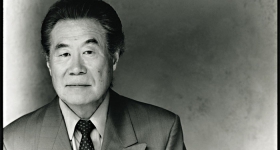I had a bit of nostalgia recently, and I recalled the good 'ol days of college lectures and courses. One that recently sprung to mind was a discussion about stereotypes. For example, my favorite one is that Asian Americans are good at math and science. Perhaps it is near and dear to my own heart because my brain has a hard enough time calculating the tip on a check, and I really never understood the ins and outs of photosynthesis.
However, I always wondered: is it still considered bad if a stereotype is "good?" Isn't it usually seen as a positive thing if someone believes you are smart, capable, hard-working?
Then I stumbled across a recent article that debunks the notion that Asian Americans are always "top notchers." In the study from New York University, a group of mostly Asian American educators and the College Board found that the number of Asian Americans at institutions was inflated by the influx of international students, and that (surprise, surprise) "not all were top students gaining easy entry to the best colleges and universities to become doctors and engineers."
Additionally, the increase of Asian American and Pacific Islander students in colleges and universities is proportional to the increases in population, whereas people used to think the increased amount of students meant that they were "taking over" because of their academic performance. In the increase of students and the assumption that Asian Americans do well in school, many who need academic help are overlooked.
It's nice to see that people are starting to recognize that even though a stereotype can seem "positive," it is still a stereotype.
Or is it possible for a "beneficial" stereotype to exist?









Comments